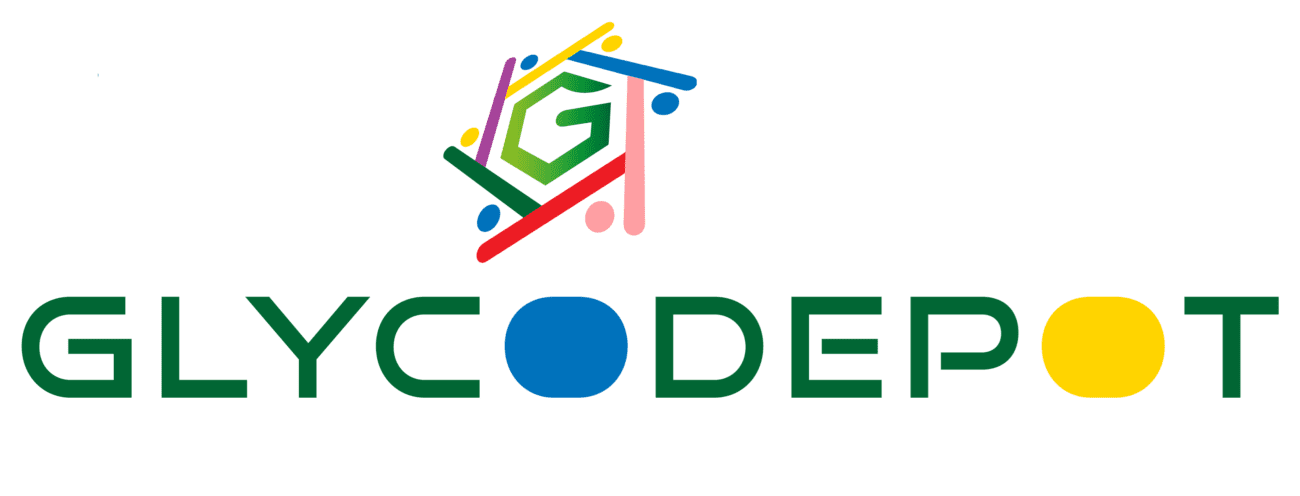

In the world of biologic drugs, the complexity and precision of glycosylation, particularly N-glycans, play a pivotal role in the efficacy, safety, and stability of these therapeutics. Glycoproteins and antibodies, the stars of modern biologics, rely heavily on glycan structures for their function and therapeutic action. Understanding and controlling N-glycan structures has become a key area of focus in biologic drug development.
N-Glycans are a type of carbohydrate (or glycan) that are covalently attached to the nitrogen atom (N) in the side chain of asparagine residues within proteins. This glycosylation process occurs during protein synthesis in the endoplasmic reticulum and continues in the Golgi apparatus, where the N-glycans undergo further modification and branching.
These complex sugar structures are more than just decorations on proteins; they profoundly influence protein folding, stability, and activity. N-glycans can also modulate immune responses, which is crucial when biologics, like glycoproteins and monoclonal antibodies, are administered as therapeutic agents.
Glycoproteins are proteins that have sugar chains (glycans) covalently attached to their amino acid side chains. These glycoproteins include important biologics such as hormones, enzymes, and clotting factors.
For glycoprotein drugs, N-glycosylation is essential for several reasons:
Protein Folding & Stability: N-glycans help ensure proper folding of the protein and contribute to its stability in the bloodstream.
Pharmacokinetics: N-glycan structures influence how glycoproteins are distributed, metabolized, and excreted from the body.
Immunogenicity: Aberrant glycosylation can lead to unintended immune responses. Ensuring consistent glycosylation patterns helps reduce the risk of immunogenicity and adverse effects.
Therapeutic glycoproteins like erythropoietin (EPO), which is used to treat anemia, are heavily glycosylated. The glycan structures attached to EPO are crucial for its stability and efficacy in stimulating red blood cell production.
Monoclonal antibodies (mAbs) have revolutionized the treatment of cancers, autoimmune diseases, and chronic inflammatory conditions. These biologic drugs are engineered to recognize and bind to specific antigens, enabling them to neutralize harmful cells or pathogens.
N-glycosylation is a critical quality attribute for mAbs for several reasons:
Antibody-Dependent Cellular Cytotoxicity (ADCC): The glycan structures attached to the Fc (constant) region of the antibody can influence its ability to recruit immune cells, such as natural killer (NK) cells, to destroy target cells. For example, removing specific fucose residues can enhance ADCC activity, making the antibody more potent.
Circulation Half-life: N-glycans help extend the half-life of antibodies in circulation, allowing for longer intervals between doses and reducing the overall drug burden on patients.
Structural Integrity: Proper glycosylation ensures the structural integrity of the antibody, preventing misfolding or aggregation that could lead to reduced efficacy or increased immunogenicity.
A prime example of the importance of N-glycans in mAbs is in the development of biosimilars. Biosimilars must have glycosylation profiles that closely match the original reference product to ensure similar therapeutic effects and safety.
One of the challenges in biologic drug development is ensuring consistent glycosylation patterns. Even minor changes in glycan structures can have significant effects on drug efficacy and safety. Factors like cell line selection, culture conditions, and purification methods can all influence the glycosylation of the final product.
To monitor and control N-glycan structures, advanced analytical techniques such as High-Performance Liquid Chromatography (HPLC) and Mass Spectrometry (MS) are employed. These methods allow researchers to characterize and quantify glycan profiles, ensuring that biologic drugs meet the necessary quality standards.
Moreover, regulatory agencies such as the FDA and EMA require thorough glycan analysis as part of the approval process for biologics. Manufacturers must demonstrate that their products have consistent glycosylation profiles across batches and that any variations do not impact the safety or efficacy of the drug.

As the field of biologics continues to advance, so too will our understanding of glycosylation and its impact on drug performance. Efforts to engineer glycan structures for enhanced therapeutic benefits, such as increased potency or reduced immunogenicity, are already underway.
One promising avenue is glycoengineering, where glycan structures are intentionally modified to improve drug properties. For instance, the development of afucosylated antibodies has shown enhanced ADCC activity, making them more effective in treating certain cancers.
Additionally, advancements in analytical techniques and glycan standards will enable more precise control and characterization of glycosylation in biologic drugs, paving the way for more sophisticated and effective therapies.
N-Glycans are indispensable in the development and functionality of biologic drugs, particularly glycoproteins and monoclonal antibodies. Their impact on protein folding, stability, immune modulation, and pharmacokinetics makes them a crucial component of biologic therapeutics. As the field continues to evolve, the precise control and manipulation of N-glycans will play an increasingly important role in the creation of next-generation biologics with improved efficacy, safety, and patient outcomes.
By understanding and harnessing the power of N-glycans, scientists and drug developers can continue to push the boundaries of medicine, bringing innovative and life-changing treatments to patients around the world.